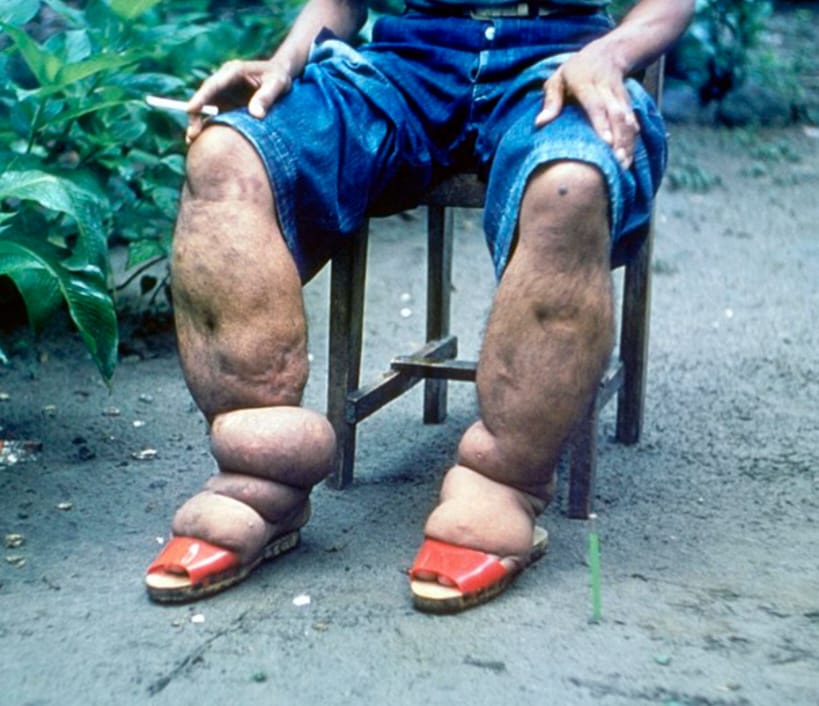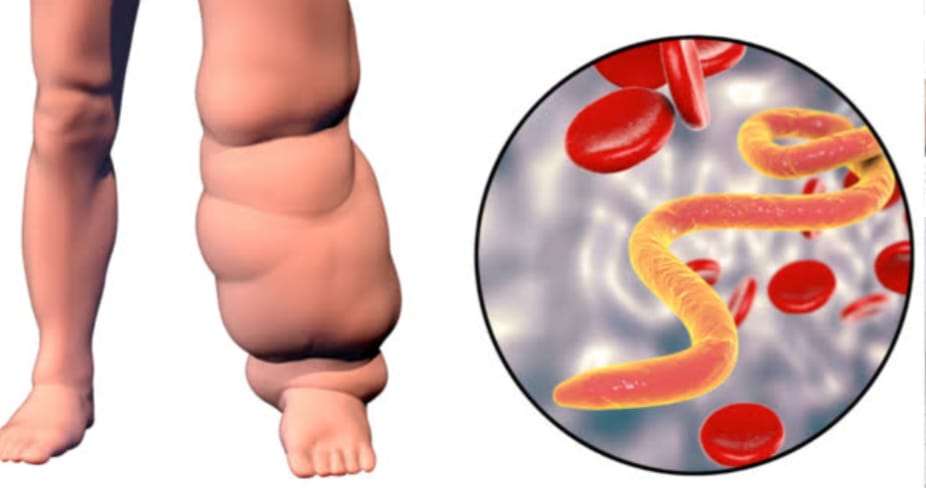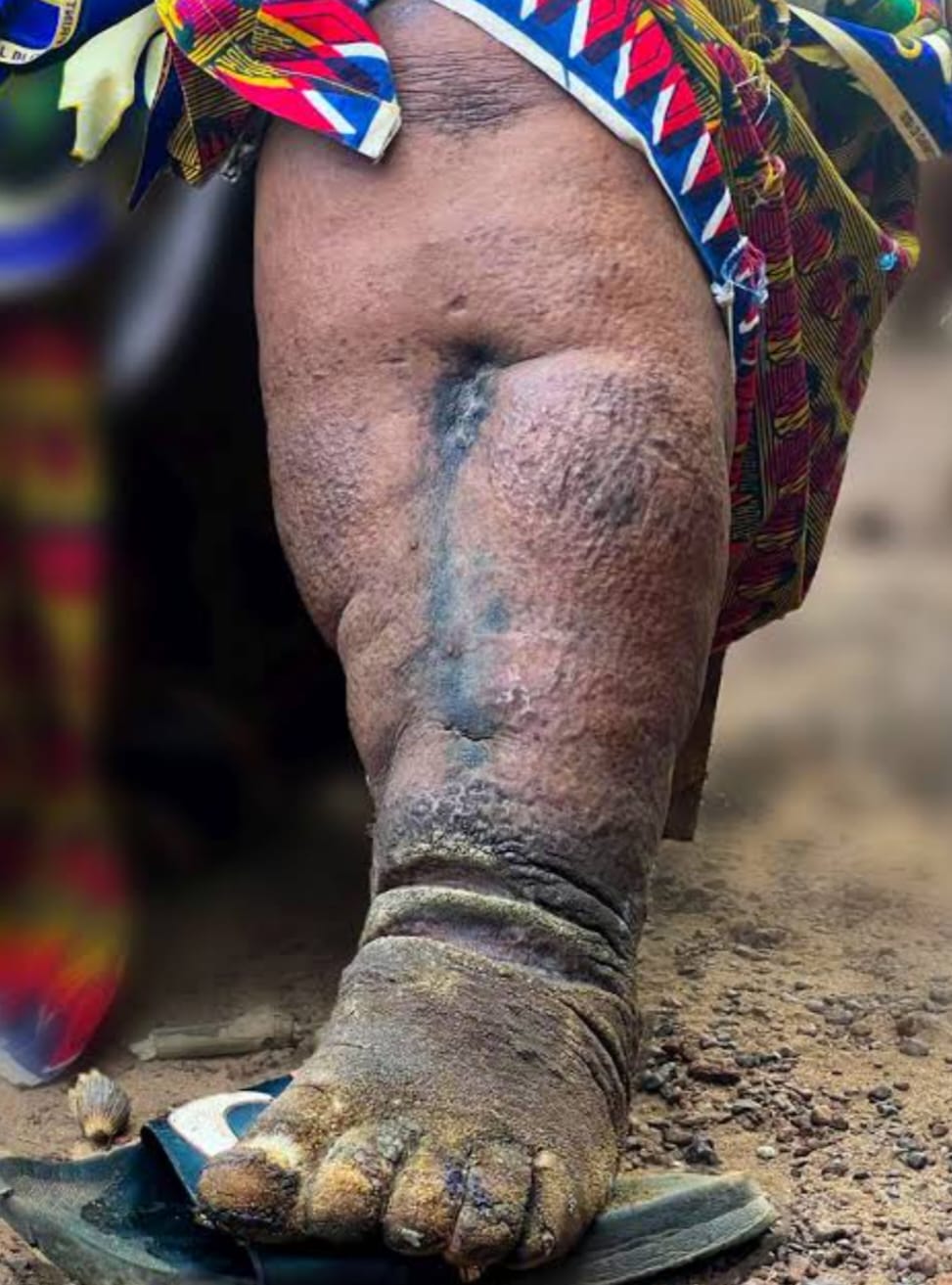Elephantiasis / Filariasis
Elephantiasis is a tropical disease caused by parasitic worms that are spread through mosquito bites. The skin gets thick and hard, resembling an elephant`s skin.
Although medically known as lymphatic filariasis, the term elephantiasis is commonly used because symptoms include swelling and enlargement of the arms and legs.
The WHO estimates that 120 million people worldwide are affected by elephantiasis. It’s more common in tropical and subtropical areas of the world, including Africa and Southeast Asia ( INDIA, BANGLADESH).
Most people who are infected will not show symptoms, despite damage to the lymph system and kidneys.
The most common symptom of elephantiasis is swelling of body parts. The swelling tends to happen in the:
-Legs
-Private parts
-Mammary gland
-Arms
The legs are the most commonly affected area. The swelling and enlargement of body parts can lead to pain and mobility issues. The skin is also affected and may be:
-dry
-thick
-Ulcerated
-Darker than normal
-Pitted
Some people experience additional symptoms, such as fever and chills.
Elephantiasis is caused by parasitic worms that are spread by mosquitoes.
There are three types of worms involved:
-Wuchereria bancrofti
-Brugia malayi
-Brugia timori
The worms affect the lymphatic system in the body. The lymphatic system is responsible for removing waste and toxins. If it becomes blocked, then it doesn’t properly remove waste. This leads to a backup of lymphatic fluid, which causes swelling.
Elephantiasis affects the immune system. People with this condition are also at increased risk for a secondary infection.
To diagnose elephantiasis, a doctor will:
Take a medical history
Inquire about symptoms
Perform a physical examination
A blood examination will be required to confirm a parasitic infection. In most parts of the world the roundworms are most active at night, so the blood sample must be collected during this time.Alternative tests may be used to detect the parasites, but they may show negative results because symptoms can develop years after the initial infection.
X-rays and USG may also be done to rule out other conditions that could be causing the swelling.
Treatments
Homeopathy is one of the most popular holistic systems of medicine. Homeopathy is strongly recommended for fast controlling the infection of Filariasis. It also ensures early recovery resulting complete cure. This is the only way through which a state of complete health can be regained by removing all the sign and symptoms from which the patient is suffering. The aim of homeopathy is not only to treat elephantiasis but to address its underlying cause and individual susceptibility.



